Individually, SEO and content marketing are both akin to titans in this era of digital marketing. And although people are typically aware that they complement each other well, they’re rarely mentioned in the same breath.
As anyone who’s tried the two together will tell you, SEO and content marketing form a deadly jab-cross combo that can knock out your competition.
But if they’re really that good together, why aren’t more businesses adopting this approach?
Let’s take a closer look at the objectives of SEO and content marketing. And while we’re at it, we’ll try to analyze what the crux of the problem is.
Table of Contents
SEO and Content Marketing Objectives
The biggest issue, here, is that people perceive both SEO and content marketing to be completely separate and individual aspects of digital marketing. They believe that both are two very different things, but that isn’t the case.
There’s a significant overlap between the two. I might even go so far as to say that they’re two personalities of the same beast.
In fact, according to a recent survey, on-page content is the most effective SEO tactic that marketers rely on. And what is on-page content, if not a part of content marketing?
Image via Statista
To understand this better, let’s chalk out the objectives of both SEO and content marketing.
People, typically, use SEO techniques to:
- Optimize their site around keywords relevant to their businesses
- Gain new, valuable, and credible backlinks from high authority web domains
Their main goal behind doing so is to:
- Improve their SERP rankings for certain keywords
- Increase their brand awareness and visibility
- Attract more website traffic
In a nutshell, they use SEO to increase website traffic in the hopes to grow their revenue and business.
But what about content marketing? It includes:
- Creating relevant, compelling, engaging, and informative content
- Using effective calls-to-action
- Generating highly-shareable content that is prone to go viral
Marketers do all of this with the objectives of:
- Increasing brand awareness and visibility
- Promoting brand loyalty by establishing thought-leadership in the industry
- Increasing time spent on site by target audiences
- Ultimately improving sales and conversion rates
To put things in perspective, SEO helps you draw users to your site while content marketing keeps them there and helps convert them. So, while SEO has a narrower and more technical approach; content marketing is more holistic in its approach.
Bringing Out the Best in One Another
We’ve established that SEO and content marketing strategies are working towards the same goal. The next question is, how can each serve to improve the other?
How Can SEO Enhance Content Marketing?
You might have written the most exquisite and engaging piece of content you’ve ever created. But what’s the point if there’s no one around to read and appreciate it? A content creation team can’t simply produce brilliant content if it doesn’t turn up in search query results.
This is where SEO can enhance your content marketing, by making your content more discoverable. It addresses the issue of content relevancy (to your business) and improves search rankings.
Simply, content that is built around keywords that are relevant to the business, will rank higher in the appropriate search results.
And it'll appear in front of the right audience. But don’t restrict yourself to just relevant keywords. Research other SEO-related aspects like:
- Content topics that rank well for particular keywords
- Customer feedback to learn what your audience expects from you
- Content types that are performing well for your competitors
How Can Content Marketing Improve SEO?
Savvy content consumers are looking to engage with content that provides them with value. They’ll easily see through any fluff you might be writing in your content. Especially if you’re creating content for the sole reason of improving your search rankings for certain keywords.
Once they catch on to your “dummy” content, they’ll deem your brand as untrustworthy and of little or no importance to them. They’d gladly take their business elsewhere. It’s what SEO team nightmares are made of.
But with content marketing, you can ensure that your SEO efforts don’t go to waste.
By creating valuable and informative content around relevant keywords, you can kill two birds with one stone. Not only will you rank better on search engines but also ensure brand loyalty and high conversion rates with engaging content.
To put things in perspective:
- SEO states the demands. Content marketing meets those demands.
- SEO requires content. Content marketing delivers the content.
- SEO needs keywords. Content marketing uses those keywords.
- SEO depends on backlinks. Content marketing is a way to get those backlinks.
- SEO demands site optimization. Content marketing demands a great user experience.
Fact is, the more you integrated SEO and content marketing are, the more seamlessly and effectively they’ll work together. Despite their differences, they overlap. They’re much better together than they are apart.
How to Combine SEO and Content Marketing
We’ve covered, at length, why and SEO and content marketing combined can benefit your business. It’s time we address how you can actually achieve the benefits of this double-edged sword.
Let’s take a look at the different ways you can combine your SEO and content marketing efforts for maximum benefit:
1. Set the Right Goals, Measure Results, and Iterate
The first step in combining SEO and content marketing is to set common goals and objectives for your marketing efforts.
Figure out which activities lie in the overlap between the two and accordingly set a quantifiable, measurable goal for them. Typically, that includes things increasing web traffic and conversion rates.
Having decided on your goals, you need to decide your key performance indicators (KPIs) which will help you measure the success of your efforts.
The best way to synergize SEO and content marketing is to use KPIs that apply to both techniques. These include content sharing, engagement, content links, CTA conversion rates, and more.
The goal, here, is to constantly measure your marketing efforts, and optimize your strategy to consistently grow your business.
There are a ton of things you can learn from your marketing campaigns, like:
- Successes – Understand what made you stand out and try to replicate those efforts. Convert anomalies into regular occurrences.
- Failures – Compare your underperforming content with more successful endeavors to figure out where you might have gone wrong. Focus on details like traffic, conversions, revenues generated, etc. by said piece of content.
2. Get a Deep Understanding of Your Target Audience
It goes without saying that a brand must revolve around their target customer – the product, the experience, and the marketing strategy.
Clearly defining your target audience will help your content team create content pieces best suited for their consumption. Surprisingly, though, only 20% of companies claim that they fully know their customer.
You need to intimately understand the motivations, pain points, experiences, and processes of your audience. Only then will you be able to deliver more engaging and impactful content to them in order to achieve long-term business growth.
Here’s what you should be doing to understand the “job” your audience is hiring you to do:
- Map their customer journey – Consider how different users are interacting with your content across channels in the different stages of the sales funnel. Customer conversion and buying behavior are important aspects you need to understand.
- Conduct customer analysis – Customer preferences are always changing. You need to keep your ear to the ground and constantly monitor customer behavior. Perform regular customer-brand interaction analysis to glean these insights and ensure you’re keeping with consumer trends.
3. Create Search Engine Optimized Content
Once you’ve figured out your target audience and marketing plan, you need to start optimizing for maximum brand visibility.
Like I mentioned earlier, if people aren’t finding your content, however great it may be, it’s doing nothing for your business. That’s why you need to optimize your content for search engines to grow your audience organically.
Here’s a list of things you can do to ensure that your content efforts don’t go in vain:
- Write on relevant topics – Content should always be customer-centric and never business- or brand-centric. Your topics should appeal to your audience based on their demographics, interests, and behaviors.
- Leverage the right keywords – Forget business and corporate jargon. Focus on creating content using keywords that are relevant to your business.
- Optimize for mobile – Mobile devices accounted for 49% of the global internet usage, last year. That means more and more people are looking up your business on their mobile and not their desktop. If your site isn't optimized for mobile, your customers will have a poor experience using it and will be highly likely to jump ship. Mobile-first indexing is one way to go.
- Map your content to specific user personas and sales funnel stages – Make the most of your customer insights and journey map. Ensure you’re delivering the right content they need to proceed to the next stage in the sales funnel and ultimately convert.
4. Leverage Guest Posting and Expert Roundups
There are two really easy ways I can think of that allow you to reap the benefits of a combined SEO and content marketing strategy. They’re fairly quick to implement and you won’t need to do a lot of restructuring to leverage them.
The first is to start guest posting – both on other sites as well as yours. Guest posting helps you establish your thought-leadership. Expose your content to new audiences. By being a value provider, you stand to gain their trust and convert them to regular customers.
Similarly, if you’re doing expert roundup posts, you’re exposing your audience to views and opinions of other industry experts. This will showcase how well-connected you are in the industry and improve your credibility.
Just reach out to industry influencers with a relevant topic or question and seek their views on it. Encourage them to share the final roundup post with their readers so as to expose yourself to their audiences.
From an SEO perspective, both of these techniques will do a lot for your link-building efforts, thereby improving your search rankings. By linking to and getting backlinks from this high-authority sites, you increase your own credibility.
Now consider that Google gives the utmost importance to content and links when deciding search rankings. These two tactics are highly effective means to leverage that fact. After all, they combine SEO and content marketing beautifully to great effect.
5. Keywords
Keywords are important for both SEO and content marketing. Without keywords, it’s difficult to rank high in search engine results. However, the only way to use keywords on your website is through content marketing.
Good content marketing consists of writing high-quality content without keyword stuffing. When you create exceptional content that uses keywords naturally, it automatically helps your SEO.
This, in turn, can help you rank higher up in search results. To find relevant keywords for your website, you can use tools like Google Keyword Planner.
6. User Experience
SEO is aimed at improving the experience of your website visitors. Websites which offer a better user experience are preferred by search engines and rank higher in SERPs. That’s why it’s crucial to design your website so that it is user-friendly.
Even if you manage to ace all of your technical parameters like error codes and broken links, you still need to create high-quality content.
That’s where content marketing comes in. SEO and content marketing both aim to create a good user-experience.
When you create valuable content, visitors will be more interested in it. This will increase your site metrics such as time on site and reduce your bounce rate. Both of these factors positively affect your SEO.
7. Backlinks
Backlinks are critical for your website’s SEO. Each backlink counts as an upvote or downvote to your website’s authenticity.
When you get backlinks from high-authority websites, it can improve your website’s reputation. One of the best ways of getting a backlink is through guest posting, as mentioned above. This requires both SEO and content marketing.
While you may zero-in on a website by checking parameters for improving your SEO, the guest post will be accepted only if it’s well-written. For this, you need to ace your content marketing game.
Alternatively, you can earn natural backlinks for the content that you write as well. If it’s an informative piece of content and it has been optimized for search, it’ll attract more visitors.
Many of these visitors may end up linking to it. This way, SEO and content marketing can get you loads of natural backlinks.
8. Consistency
To get the most out of SEO and content marketing, you need to maintain consistency. You must come up with high-quality and unique content regularly.
The reason for this being that Google prefers fresh content and this helps it rank higher up in search results.
Even with a lower Domain Authority (DA), your content may start ranking higher up due to its newness.
SEO and content marketing both complement each other in this case. Good SEO means coming up with authoritative unique content consistently. This also means that you’re excelling at your content marketing by creating excellent content.
Due to this consistency, you’ll be able to rank higher up in SERPs.
Conclusion
The methodologies we’ve discussed above are by no means easy or quick to implement. But they do represent what I like to call the silver bullet of digital marketing: SEO and content marketing working in tandem.
SEO and content marketing can help you fetch high-authority backlinks, maintain consistency, and improve your user-experience. In addition, you can set your goals and even gain a deeper understanding of your target audience through them.
If you’ve tried any of these strategies before, I’d love to hear from you how they worked out for your business. Feel free to share your integrated SEO and content marketing experiences with us in the comment section.

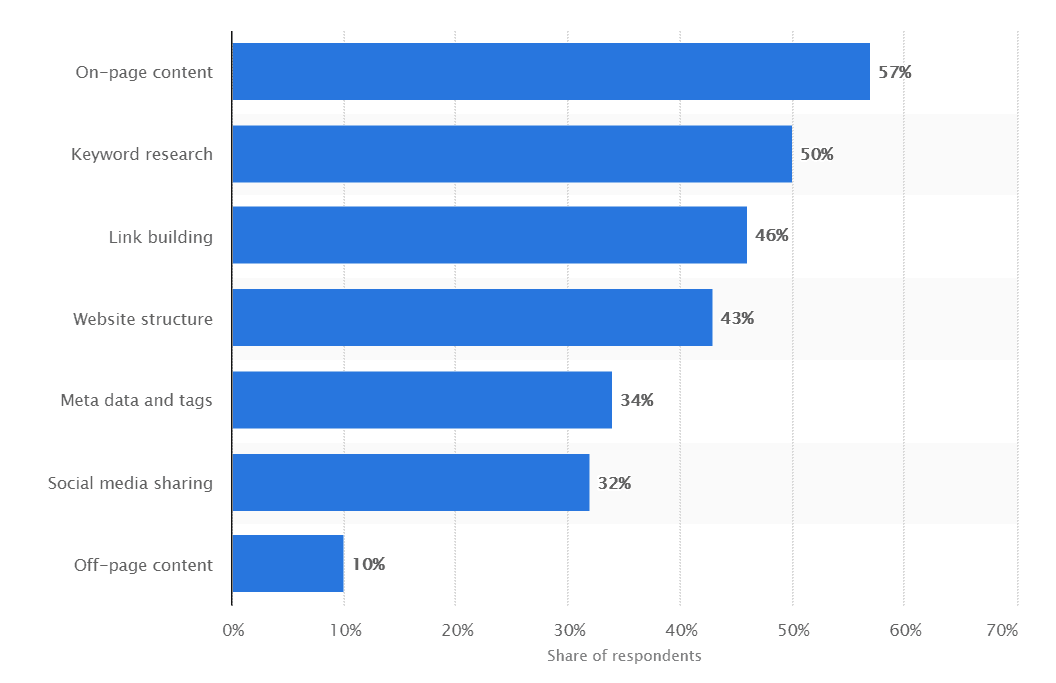
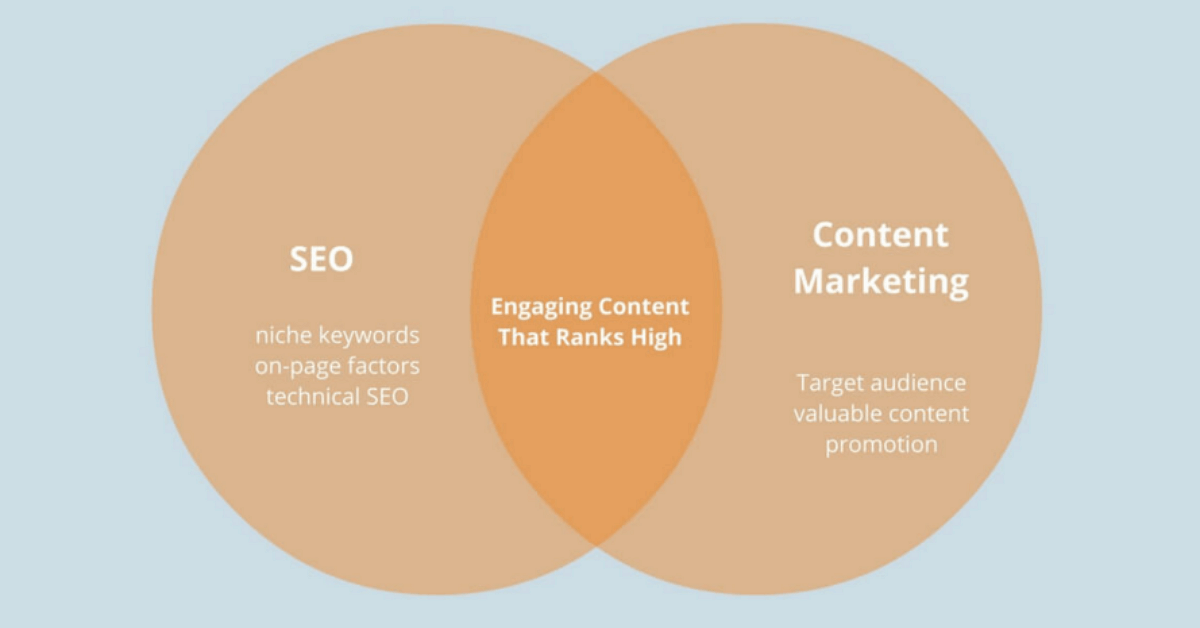
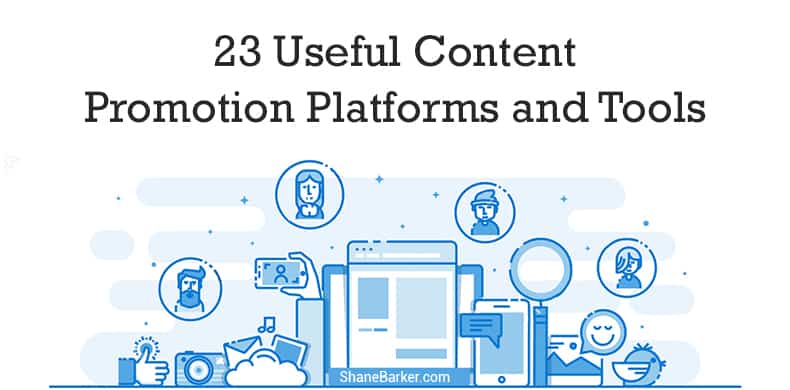
![21 awesome ecommerce content marketing examples for [year] 6 21 awesome ecommerce content marketing examples](https://shanebarker.com/wp-content/uploads/2021/12/100_-21-Awesome-Ecommerce-Content-Marketing-Examples.jpg)
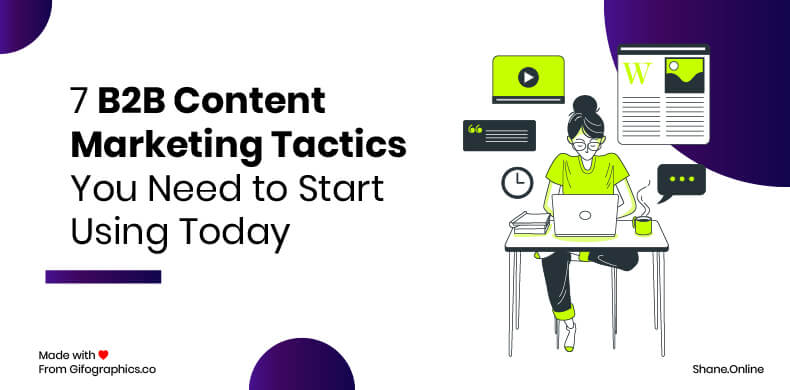
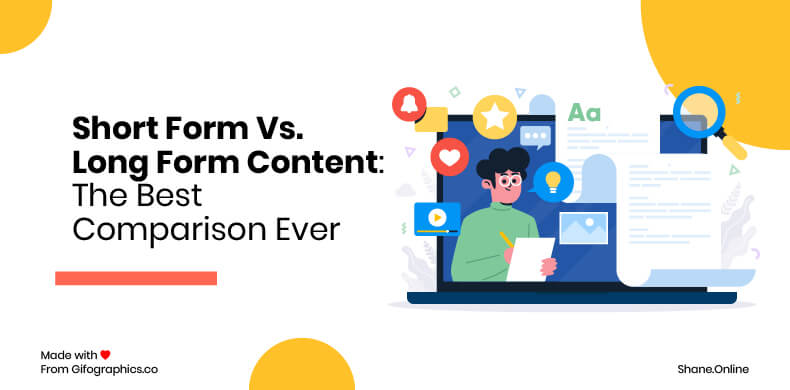


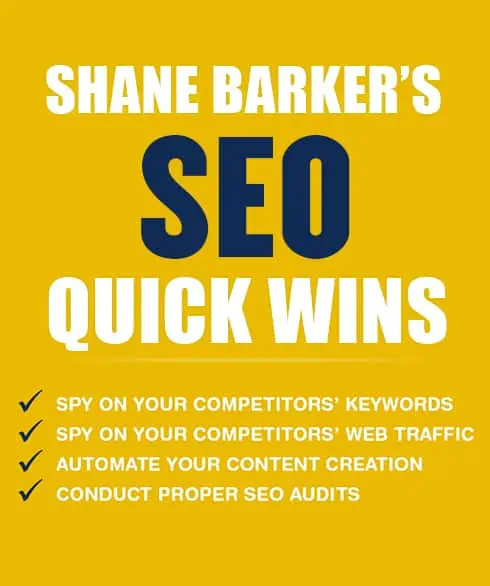
I truly appreciate your content.
I truly like your technique of writing a blog.
Thanks! Very nice to hear it.
I truly enjoy reading your blog and I look forward to your new updates.
Thanks foг one’s marvelous posting! Ι enjoyed reading іt.
I’m glad you loved it. Thank you so much, your comment really motivates me to share more of such information.
Hey Shane. Great information. Keep it up!
That’s nice of you to say. I’m glad you liked my article on SEO and content marketing.
Thank you for this amazing article.
I’m glad you feel that way. Keep coming back for more such information.
Nice information.
Thank you so much. I’m glad you liked it.